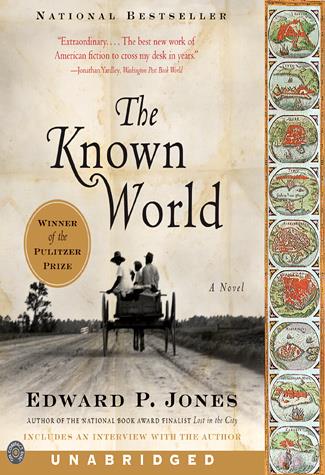
The Known World
کتاب های مرتبط
- اطلاعات
- نقد و بررسی
- دیدگاه کاربران
نقد و بررسی

This remarkable novel, winner of the PEN/Hemingway Award and short-listed for the National Book Award, deserves all the acclaim it has won and then some, especially in this flawless rendition. The story is set in antebellum Virginia, in the morally complex world of prosperous free blacks who aspire to all the liberties of white citizenship, including owning slaves. Kevin Free's narration is so accomplished that when a woman character speaks, you utterly forget that she does it through a man's voice. He gives each character color, personality, and heft, without ever vamping or straining for effect. The novel bears comparison with Trollope and Faulkner, and Kevin Free's performance of it is in the same league. B.G. Winner of AudioFile Earphones Award (c) AudioFile 2004, Portland, Maine

August 11, 2003
In a crabbed, powerful follow-up to his National Book Award–nominated short story collection (Lost in the City), Jones explores an oft-neglected chapter of American history, the world of blacks who owned blacks in the antebellum South. His fictional examination of this unusual phenomenon starts with the dying 31-year-old Henry Townsend, a former slave—now master of 33 slaves of his own and more than 50 acres of land in Manchester County, Va.—worried about the fate of his holdings upon his early death. As a slave in his youth, Henry makes himself indispensable to his master, William Robbins. Even after Henry's parents purchase the family's freedom, Henry retains his allegiance to Robbins, who patronizes him when he sets up shop as a shoemaker and helps him buy his first slaves and his plantation. Jones's thorough knowledge of the legal and social intricacies of slaveholding allows him to paint a complex, often startling picture of life in the region. His richest characterizations—of Robbins and Henry—are particularly revealing. Though he is a cruel master to his slaves, Robbins is desperately in love with a black woman and feels as much fondness for Henry as for his own children; Henry, meanwhile, reads Milton, but beats his slaves as readily as Robbins does. Henry's wife, Caldonia, is not as disciplined as her husband, and when he dies, his worst fears are realized: the plantation falls into chaos. Jones's prose can be rather static and his phrasings ponderous, but his narrative achieves crushing momentum through sheer accumulation of detail, unusual historical insight and generous character writing. Agent, Eric Simonoff. (Sept.) Forecast:This is a new tack for Jones, whose collection
Lost in the City was set in Washington, D.C., in the 1960s and '70s. Amistad is sending the novel off with a bang—a 10-city author tour, a 20-city national radio campaign—and it should attract considerable review attention.

























دیدگاه کاربران